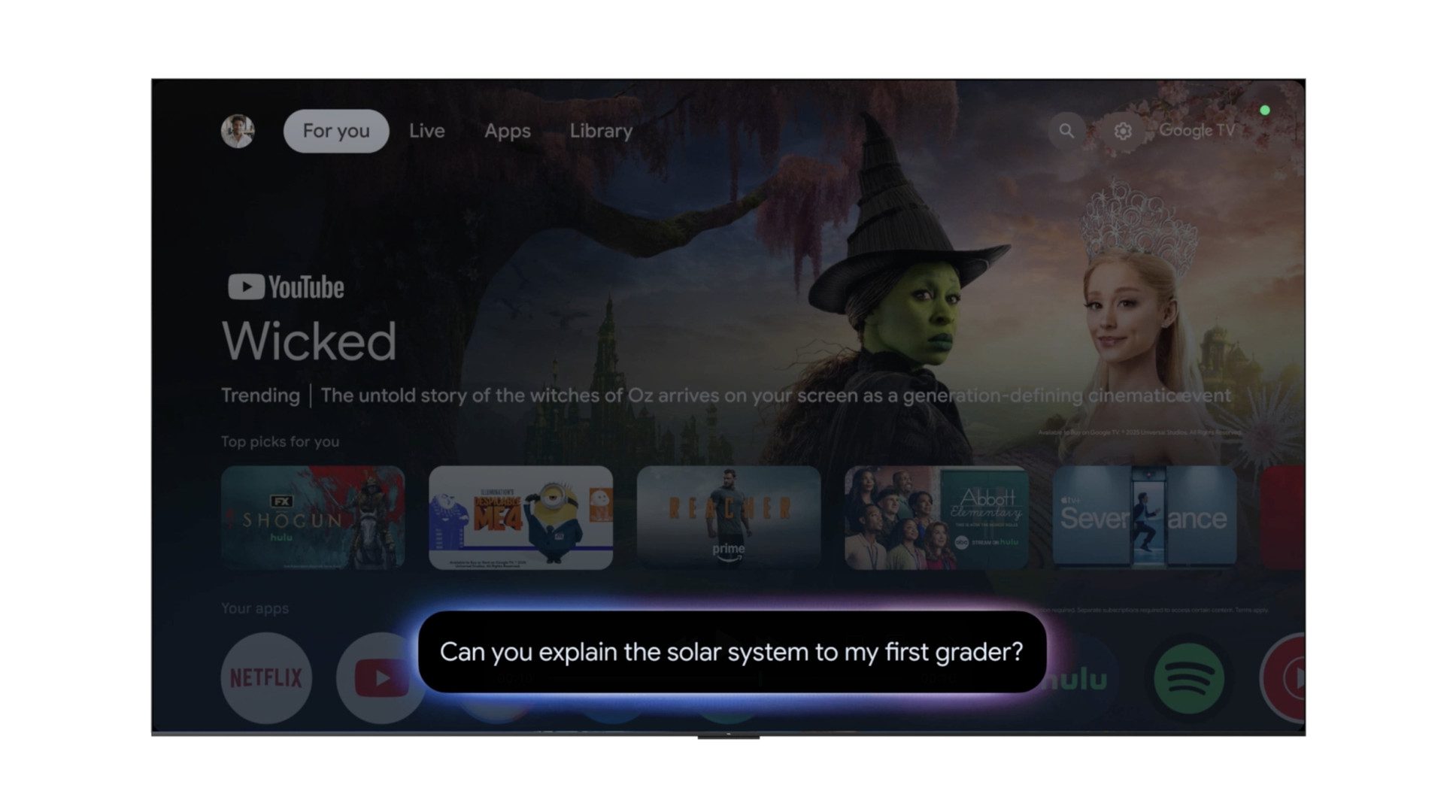Google has announced the integration of its Gemini AI technology into the Google TV streamer, enhancing user interaction and content accessibility.
Introduction to Gemini AI
Gemini AI represents a significant advancement in artificial intelligence, designed to streamline user experiences across various Google platforms. By leveraging natural language processing and machine learning, Gemini aims to make technology more accessible and intuitive for users. This integration into the Google TV streamer is a strategic move by Google to enhance the way users interact with their devices, particularly in the realm of content consumption.
Enhancements in Voice Interaction
One of the most notable features of the Gemini integration is its focus on voice interaction. Google emphasizes that this change will allow users to communicate with their devices in a more natural and conversational manner. The goal is to reduce the friction often associated with traditional voice commands, which can sometimes feel robotic or overly structured.
Natural Language Processing
Natural language processing (NLP) is at the core of Gemini’s capabilities. This technology enables the system to understand and interpret user queries in a way that mimics human conversation. For instance, users can ask for content recommendations or specific shows without needing to use exact titles or phrases. Instead, they can express their preferences in a more casual tone, making the interaction feel more organic.
Contextual Understanding
Another significant improvement is Gemini’s ability to understand context. This means that the AI can take into account previous interactions, user preferences, and even current trends to provide more relevant suggestions. For example, if a user frequently watches science fiction shows, Gemini can prioritize similar content when responding to queries. This contextual awareness not only enhances user satisfaction but also encourages deeper engagement with the platform.
Implications for Content Discovery
The integration of Gemini into Google TV is poised to revolutionize how users discover content. Traditional methods of browsing can often lead to frustration, especially when users are unsure of what they want to watch. With Gemini, the process becomes more streamlined and personalized.
Personalized Recommendations
Personalized recommendations are a hallmark of modern streaming services. Gemini’s advanced algorithms analyze viewing habits and preferences to curate a list of suggestions tailored to each user. This personalized approach not only saves time but also enhances the overall viewing experience. Users are more likely to discover new shows and movies that align with their interests, fostering a more engaging environment.
Enhanced Search Capabilities
In addition to recommendations, Gemini’s enhanced search capabilities allow users to find specific content more efficiently. Users can simply ask questions like, “What are some good comedies to watch tonight?” or “Show me the latest documentaries,” and Gemini will provide a list of options based on the query. This ease of access is particularly beneficial in a landscape where content libraries are vast and ever-expanding.
Stakeholder Reactions
The announcement of Gemini’s integration has garnered mixed reactions from various stakeholders in the tech and entertainment industries. While many see the potential for improved user experiences, others express concerns about privacy and data security.
Industry Experts
Industry experts have largely welcomed the move, highlighting the importance of AI in enhancing user engagement. Many believe that as streaming services continue to proliferate, the ability to provide personalized and intuitive experiences will be a key differentiator. “Google’s Gemini could set a new standard for how users interact with their devices,” said a prominent tech analyst. “The focus on natural language and contextual understanding is a game-changer.”
Privacy Concerns
On the flip side, privacy advocates have raised alarms about the data collection practices necessary for Gemini to function effectively. The system’s reliance on user data to provide personalized experiences means that sensitive information may be collected and analyzed. Critics argue that users should be made fully aware of what data is being collected and how it is being used. “While the benefits of AI are clear, we must also consider the implications for user privacy,” stated a privacy advocate. “Transparency is key.”
Future of Streaming with AI
The integration of Gemini into Google TV is just one example of how AI is shaping the future of streaming services. As competition intensifies among various platforms, companies are increasingly turning to AI to enhance user experiences and drive engagement.
Potential for Broader Applications
Beyond content discovery, the applications of Gemini could extend to other areas of the Google ecosystem. For instance, the technology could be utilized in Google Assistant, smart home devices, and even in the realm of gaming. The ability to interact with technology through natural language could lead to more seamless experiences across various platforms.
Challenges Ahead
Despite the promising outlook, challenges remain. The implementation of AI technologies like Gemini requires significant investment in infrastructure and ongoing development. Additionally, companies must navigate the complexities of user privacy and data security, ensuring that users feel safe and secure while using their services.
Conclusion
The integration of Gemini AI into the Google TV streamer marks a significant step forward in the evolution of user interaction with technology. By enabling more natural voice commands and enhancing content discovery, Google aims to create a more engaging and personalized viewing experience. However, as with any technological advancement, it is crucial to balance innovation with user privacy and security. As the streaming landscape continues to evolve, the role of AI will undoubtedly become increasingly central, shaping the way users consume content and interact with their devices.
Source: Original report
Was this helpful?
Last Modified: November 11, 2025 at 1:39 am
2 views















